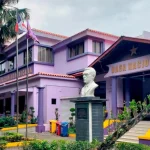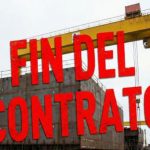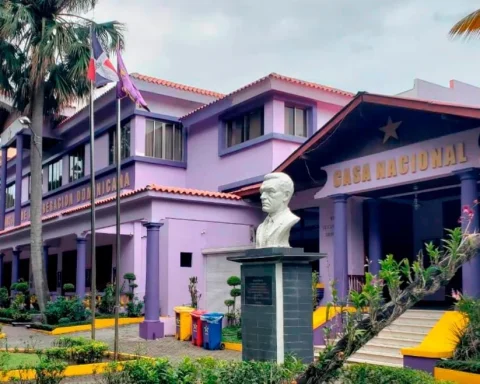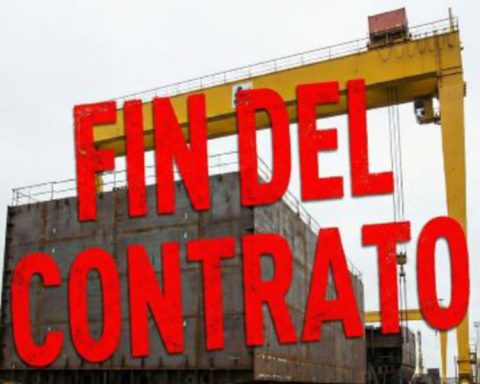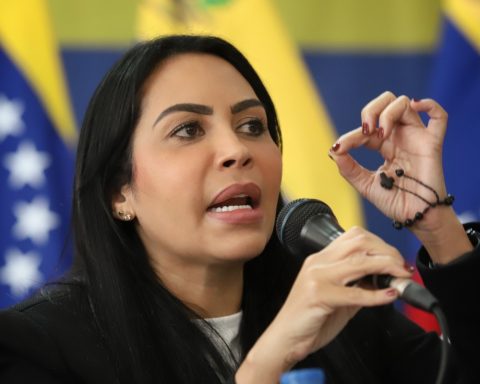The television series of the Clean Technology Institute (ITL) of Corfo adds a new chapter. And continuing with the analogy, this would be the final chapter, since the Supreme Court upheld the appeal for constitutional protection filed by rectors of Chilean universities, which accused errors and irregularities in the bidding process, leaving without effect the acts of adjudication of the January 4, 2021. This tender had been awarded by the Associated Universities Inc. (AUI) consortium, made up of nine foreign universities and Chilean partners such as the Universidad del Desarrollo and San Sebastián.
The appeal, presented by the rectors of the universities of Chile, Católica, Antofagasta, Concepción, Católica del Norte, Santiago, Tarapacá and Talca, entities that are part of the Association for the Development of the Technological Institute (Asdit) consortium , which obtained second place in the Corfo tender, was admitted by the Third Chamber of the Court – made up of ministers Sergio Muñoz, Adelita Ravanales, Mario Carroza and Jean Pierre Matus; and by the member attorney Raúl Fuentes– by 4 votes to 1 (Fuentes voted against), annulling the decision of the Court of Appeals that had declared this appeal “inadmissible” and, instead, accepted it.
It may interest you:
In its argument, the highest court referred to the double role played by the former general manager of Corfo, Felipe Commentz Silva, in the Evaluation Commission and, later, as executive vice president (s) for the disqualification of the owner, Pablo Terrazasin the Council of Ministers of Corfo, indicating that “it constitutes a manifest irregularity”.
“The circumstances noted above demonstrate or reveal the partiality with which Mr. Commentz presented the report of the Evaluation Commission that he himself signed. Reproducing an opinion that at least does not have a sufficient reason expressed, given that, according to the presenter himself, Despite evaluating the project itself, what would happen at the end of the ten-year period in which the project would be financed was fundamental, without it being stated that such continuity had been required in the bidding rules. his vote in favor of AUI, ratifying the same pronouncement that he made as a member of the Evaluation Commission,” the ruling indicates.
“This irregularity prevents recognition of the necessary legitimacy to produce effects to the procedure, since the principle of impartiality of the administrative procedure contemplated in subparagraph 1 of article 11 of Law No. 19,880 has been seriously lacked (…). reasoned, it is clear that both the guarantee of equality and due process, applicable to the actions of the Administration in making 32 decisions, have been ignored.In effect, this Supreme Court has said that the State has the obligation to substantiate a procedure fulfilling the mandate of article 10 of Law No. 19,880, (…) a rule that reflects the constitutional mandate of due process and that appears to be violated with respect to the plaintiffs, who have lost the tender in an irregular procedure, in that the participation of Mr. Commentz appears partial and decisive in the adoption of the final decision of the process of awarding the R&D contribution.In the same sense, he must conclude It should be noted that rationality has been absent in the pronouncement of the CORFO Council, since Mr. Commetz should have refrained from participating as a member of it. For what is reasoned, this action must be accepted,” they add.
Actors’ reactions
in conversation with The counterthe lawyer representing the Asdit consortium, Gabriel Reyes Sixfingersaffirmed that “because it is a protection resource, it is a tremendous and very positive ruling for the country. From the multiplicity of irregularities that we accredit, the Court takes as undoubted and blatant the lack of impartiality of the general manager of Corfo at the time, Felipe Commentz And he establishes a doctrine, saying that the standard of transparency required in today’s society requires that the administration behave impartially, honestly, transparently and without conflicts of interest and, if this is not fulfilled, the decision or the final act is void”.
“This is very interesting, since in this case Corfo always said that Mr. Commentz’s actions were in accordance with the law, minimizing the irregular acts perpetrated. The Supreme Court clearly says no and labels his actions as ‘manifest irregularity,’ and their vote as ‘illegitimate’ For us it was always clear that the Corfo officials involved in the entire ITL process did not respect the guarantee of due process and it is a source of joy that the highest court of the Republic has considered the same in this historic ruling “From the point of view of the protection appeal, I believe that the Court did justice. Now we hope that the Council of Corfo will also do the same from the point of view of the adjudication of this process. The application of AUI, according to antecedents that we obtained through the Transparency Law, it lacks the required information, which leaves it unfounded. We hope that the Corfo Council can also examine that information,” he added.
Reyes indicated that they are attentive to the criminal investigation on this matter, which began after the report of the Investigative Commission of the Chamber of Deputies. “We believe that this investigation will go into the details of the personal responsibility of officials in these events, having in view much more background information than that which the Supreme Court had to examine in the seat of protection appeal. In my opinion, there was a deliberate operation here to discredit to the members of the Alta Ley application and acts of public employees who tried to consolidate an irregular adjudication to AUI. We will present antecedents in that sense to the Prosecutor’s Office, “he said.
Precisely, the president of the mentioned commission, Deputy Tomás Hirsch (AH), celebrated the ruling of the highest court in the country, assuring that “it confirms what we concluded in the investigative instance and clarifies a situation that we had denounced. Secondly, by being able to vote again, which was what the Supreme Court decided, it will allow the developer of the next Institute of Clean Technologies to be chosen accordingly: without representatives who are interested parties, allowing the resources remain in the hands of Chilean universities, with investment in the mining regions, with possibilities of technological, scientific and academic development for our country, with the generation of contracts and the development of Chilean labor. From every point of view, it is a tremendously important resolution.”
Finally, Corfo indicated that it accepts the appeal “dictated yesterday and notified during the afternoon, which it will comply with because it is a judicial sentence.” It should be remembered that, at present, there are not the names that initially tendered in the aforementioned Council of Corfo, but now it is made up, among others, of the Minister of Economy, Nicolás Grau; the Minister of Finance, Mario Marcel; the Minister of Agriculture, Esteban Valenzuela; and the executive vice president of Corfo, José Miguel Benavente.
The rectors celebrate
After hearing the news, the Asdit consortium celebrated the Supreme Court ruling. Víctor Pérez, executive director, pointed out that “both the country and the Antofagasta Region, as well as the institutions that seek to participate and develop the ITL, deserve a serious and informed decision to be made under the highest standards of transparency, probity and resolution. of conflicts of interest. The resolution of the Third Chamber of the Supreme Court, which accepts the appeal for protection, annulling Corfo’s adjudication minutes, requests that all the information be made available to the Corfo Council, so that it can adopt a decision of adjudication as soon as possible, and that a well-founded decision be issued on the admissible proposals in a transparent manner and considering the evaluations of international experts. This ruling of the Supreme Court honors the purpose of Asdit, which is none other than to improve the quality of life of Chileans with new knowledge, innovation, entrepreneurship and new technologies that support sustainable development for our country, humanity and future generations. “.
Rosa Devés, rector of the University of Chile, commented that “the ruling of the Supreme Court is forceful, and it is very good news for the country, for the development of science and innovation and local entrepreneurship, in the areas of energy solar, green mining, hydrogen production and technologies associated with lithium production. The Asdit consortium is fully active, and has continued to deepen public-private activities along these lines. In this sense, the University of Chile has the teams prepared to carry out this initiative, within the framework defined by Corfo.”
For his part, Ignacio Sánchez, rector of the Pontifical Catholic University of Chile, assured that “as UC we are very satisfied with the ruling of the Supreme Court, which upholds the appeal for protection filed by a group of prestigious Chilean universities and national entities and foreigners, in a matter that is of primary interest to the country. It is recognized that the allocation of resources for the Institute of Clean Technologies had anomalies that must be corrected. It is also ordered that an award decision be made as soon as possible, based as transparently as possible on the admissible proposals and the opinions of international experts,” he concluded.








